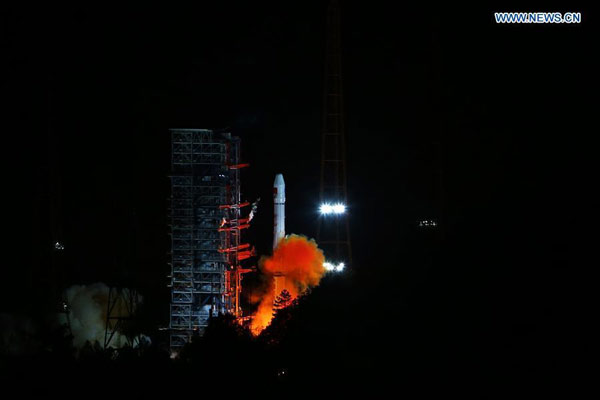Cooperation and civilian use key to Beidou's future
(China Daily) Updated: 2016-06-20 07:49
 |
|
A Long March-3A carrier rocket carrying the 22nd satellite in the BeiDou Navigation Satellite System (BDS) lifts off from Xichang Satellite Launch Center, southwest China's Sichuan Province, March 30, 2016.[Photo/Xinhua] |
AT A RECENT NEWS conference, the spokesperson for Beidou Navigation Satellite System said that it has been rendering a service to the Asia-Pacific region since 2012, and it has been performing better for the past three years. However, Beidou needs deeper international cooperation in order to prosper, says Beijing Youth Daily:
The Global Positioning System of the United States has long been dominant in the global navigation market. However, there is no free lunch and no nation can afford to rely on the US for its own navigation.
That's why many countries, the US' allies included, have been trying to escape from their reliance upon GPS. Russia has its Glonass, Europe has its Galileo, and China has Beidou.
Beidou should seek deep cooperation with other navigation systems in order to prosper.
Beidou's market reached 42 billion yuan ($6.4 billion) by the end of 2015. However, that's still too small compared with GPS, which accounts for 90 percent of the global market. Even if its market share reaches 100 billion yuan in 2020, as estimated, that will be still far smaller than that of GPS.
Navigation is already an indispensable tool in daily life and Beidou must work with GPS and other partners. For example, GPS is not so accurate in certain regions, and Beidou can appeal to users by offering high-accuracy navigation services in these regions instead, but that requires it to be compatible with the GPS.
Besides, Beidou serves both the military and civilians uses, and it needs to win the support of more civilians so as to gain a larger share in the market. This year the smartphones that use Beidou will exceed 20 million, and such data best illustrates the importance of the civilian market to Beidou. Both international cooperation and more civilian use are essential to its growth.

I’ve lived in China for quite a considerable time including my graduate school years, travelled and worked in a few cities and still choose my destination taking into consideration the density of smog or PM2.5 particulate matter in the region.











